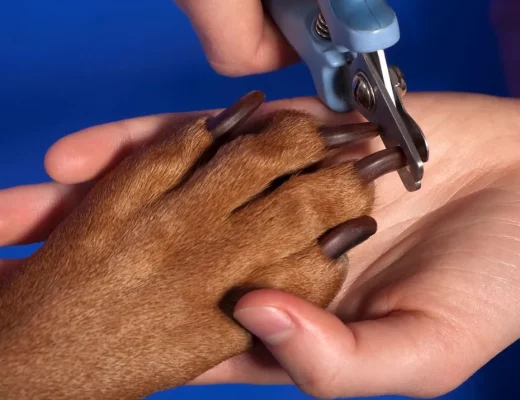Dogs are beloved pets that bring us joy and happiness. As a dog owner, it’s important to understand why dogs shake or shiver, as it can be a sign of various underlying health issues. In this article, we will discuss the reasons why dogs shake or shiver and what you can do to help your furry friend.

- Contents:
- Cold or Fear
- Pain-Related
- Old Age
- Poisoning and Infections
- Tremors and Seizures
- Other reasons
- Conclusion
Cold or Fear
If your dog is shaking due to cold, you may also consider providing a warm dog coat or heating pad to help regulate their body temperature. If your dog is shaking due to fear, avoiding exposure to the triggering stimuli may help reduce the likelihood of shaking.
Gradual desensitization techniques, such as playing recorded sounds of thunder or fireworks at a low volume and gradually increasing the volume over time, can help reduce fear-induced shaking. Some dogs may benefit from anxiety-reducing medications or supplements such as CBD oil.
Providing a safe and secure crate or den-like space can also help reduce fear-induced shaking in some dogs. If fear-induced shaking is severe or accompanied by other signs of anxiety, such as pacing or excessive drooling, consult with a veterinarian or certified dog behaviorist for guidance.
To manage shaking in dogs caused by cold or fear, provide warmth and use gradual desensitization techniques, consider anxiety-reducing medications or supplements, and seek professional guidance for severe cases.
@8pawsclub ?Why dog is shaking? #8pawsclub #dogpsychology #dogtraining #dogtrainer #dogbehavior #doglover #dogoftheday #dogstagram #training #puppytraining #workingdog #dogschool #positivereinforcement #onlinecourses #workdog
♬ original sound – Dog Behavior & Welfare Trainer
Pain-Related
Some signs of pain in dogs may be subtle, such as decreased activity or appetite. Your veterinarian may recommend diagnostic tests such as x-rays or ultrasound to help determine the underlying cause of pain. If your dog is on pain medication, be sure to follow the dosing instructions carefully and monitor for any potential side effects.
Some dogs may benefit from alternative therapies such as acupuncture or physical therapy to help manage pain. In some cases, surgery may be necessary to address the underlying cause of pain.
It’s important to work with your veterinarian to create a comprehensive pain management plan that takes into account the dog’s overall health and lifestyle.
Observing subtle signs, working with the vet, monitoring medication, considering alternative therapies, and creating a comprehensive pain management plan based on the dog’s health and lifestyle are essential to manage a dog’s pain effectively.
Old Age
Providing a soft and supportive bed can help alleviate discomfort for senior dogs experiencing age-related shaking. Senior dogs may benefit from a diet tailored to their nutritional needs, such as one high in omega-3 fatty acids to support joint health.
Regular exercise can help keep senior dogs mobile and maintain muscle mass. Regular veterinary check-ups can help identify and address age-related health issues before they become more severe.
If your senior dog is experiencing cognitive dysfunction, consider environmental modifications such as providing visual aids or increased environmental enrichment to help stimulate their mind. Some senior dogs may benefit from anti-anxiety medication or supplements to help manage age-related anxiety and agitation.
To support senior dogs’ wellbeing, provide a comfortable bed, tailored nutrition, regular exercise, veterinary check-ups, environmental modifications, and medication for age-related issues.
| Causes | Solutions |
|---|---|
| Cold or Fear ? | Warm coat, heating pad, avoid triggering stimuli, gradual desensitization, safe and secure crate, anxiety-reducing medications or supplements, seek professional guidance |
| Pain-Related ? | Diagnostic tests, follow dosing instructions, monitor for side effects, alternative therapies, surgery, create a comprehensive pain management plan with veterinarian |
| Old Age ? | Soft and supportive bed, tailored nutrition, regular exercise, veterinary check-ups, environmental modifications, medication for age-related issues |
| Poisoning and Infections ? | Be aware of toxic substances, prevent exposure to infectious agents, follow the veterinarian’s instructions, provide supportive care like fluid therapy or oxygen supplementation |
| Tremors and Seizures ? | Keep a record of episodes, follow veterinarian’s recommendations, monitor for side effects, consult a specialist if needed |
| Other reasons ?♀️ | Consult a vet, conduct tests to determine the shaking’s cause, develop a treatment plan, and schedule check-ups to monitor a dog’s health |
Poisoning and Infections
Some substances that are toxic to dogs, such as antifreeze or certain plants, may not cause immediate symptoms but can be fatal if left untreated. If you suspect your dog has been poisoned, do not induce vomiting unless instructed to do so by a veterinarian.
Infections can be caused by a variety of pathogens and may require different treatment protocols depending on the underlying cause. Preventing exposure to infectious agents, such as by vaccinating your dog or practicing good hygiene, can help reduce the risk of infection.
In some cases, supportive care such as fluid therapy or oxygen supplementation may be necessary to help the dog recover. If your dog has been diagnosed with an infectious disease, it’s important to follow the veterinarian’s instructions carefully to prevent transmission to other pets or humans.
To protect your dog’s health, be aware of toxic substances and prevent exposure to infectious agents, and follow the veterinarian’s instructions carefully to treat any issues that may arise.
Tremors and Seizures
Some breeds of dogs, such as Dobermans or Irish Setters, may be predisposed to certain types of tremors or seizures. If your dog is experiencing tremors or seizures, keep a record of the frequency and duration of episodes to help your veterinarian determine the underlying cause.
Some dogs may require medication to manage tremors or seizures, while others may require surgery or other interventions. In some cases, changes to the dog’s environment or lifestyle, such as reducing exposure to loud noises or increasing exercise, may help reduce the frequency of tremors or seizures.
Some medications used to manage tremors or seizures may have side effects, so it’s important to follow your veterinarian’s dosing instructions carefully and monitor your dog for any adverse reactions. If your dog is experiencing frequent or severe tremors or seizures, consult with a veterinarian or veterinary neurologist for guidance.
To manage tremors or seizures in dogs, keep a record of episodes, follow your veterinarian’s recommendations for medication or lifestyle changes, monitor for side effects, and consult with a specialist if needed, especially if the episodes are frequent or severe.

Other reasons
There are many other potential causes of shaking in dogs, including hormonal imbalances, heart disease, and neurological disorders. In some cases, a combination of underlying factors may be contributing to the dog’s shaking.
Diagnostic tests such as bloodwork, imaging, and neurological exams may be necessary to help determine the underlying cause of shaking. Treatment for shaking will depend on the underlying cause, so it’s important to work with your veterinarian to develop a customized treatment plan.
In some cases, lifestyle modifications such as changes to diet, exercise, or environmental enrichment may also be recommended to help manage shaking. Regular veterinary check-ups can help identify and address potential health issues before they become more severe.
Consult a vet, conduct tests to determine the shaking’s cause, develop a treatment plan, and schedule check-ups to monitor a dog’s health.
Conclusion
In conclusion, shaking is a common behavior in dogs that can have many different causes. While shaking can be normal in certain situations, it’s important to monitor your dog’s shaking behavior and consult with a veterinarian if you have concerns. With proper diagnosis and treatment, many cases of shaking can be effectively managed or resolved. If you notice shaking or other changes in your dog’s behavior, don’t hesitate to contact your veterinarian for guidance and support. By working together, you can help ensure that your furry friend stays healthy and happy for years to come.
FAQ
Is it normal for dogs to shake?
It’s normal for dogs to shake in some situations, such as when they’re wet or cold. However, shaking can also be a sign of underlying health issues, so it’s important to monitor your dog’s shaking behavior and consult with a veterinarian if you have concerns.
How can I tell if my dog is shaking due to pain?
Signs of pain in dogs can be subtle, but some common indicators include decreased activity or appetite, reluctance to move or jump, and vocalization such as whining or whimpering.
Can anxiety cause a dog to shake?
Yes, anxiety is a common cause of shaking in dogs. Some dogs may benefit from anxiety-reducing medications or supplements, while others may require behavior modification techniques such as gradual desensitization.
How do I know if my senior dog’s shaking is normal aging or a health issue?
If your senior dog is experiencing shaking or other changes in behavior or mobility, it’s important to consult with a veterinarian for a thorough examination and diagnostic testing to determine the underlying cause.
Can infections cause dogs to shake?
Yes, infections such as bacterial or viral infections can cause dogs to shake. In some cases, antibiotics or other medications may be necessary to treat the infection.
Can tremors in dogs be cured?
The underlying cause of tremors in dogs will determine the appropriate treatment plan. Some tremors may be managed with medication or lifestyle modifications, while others may require surgery or other interventions.
When should I take my dog to the vet for shaking?
If your dog is shaking frequently, experiencing severe shaking, or shaking is accompanied by other signs such as vomiting or lethargy, it’s important to consult with a veterinarian as soon as possible to determine the underlying cause and appropriate treatment plan.




